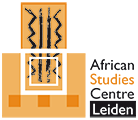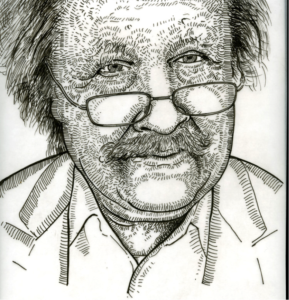Susan Neiman ~ Verzet en rede in tijden van nepnieuws
De Europese Commissie presenteerde op 25 april 2018 haar voorstel over het bestrijden van nepnieuws en desinformatie. Een gedragscode voor online-platforms als Facebook, Twitter en Google moet worden ontwikkeld en een Europees netwerk van ‘fact checkers’ moet nepnieuws en valse informatie tegengaan. Speciale lesprogramma’s voor scholieren over het herkennen van nepnieuws staan eveneens op het verlanglijstje van de EC.
Ook Susan Neiman stelt de vraag wat we kunnen doen in tijden van ‘post-truth politics’ in haar in 2017 verschenen boek ‘Verzet en rede in tijden van nepnieuws’, maar dan vanuit een meer filosofische en morele invalshoek. Ze concentreert zich hierbij onder andere op de situatie in de Verenigde Staten en hoe nepnieuws en desinformatie Trump aan de macht hielp en aan de macht houdt.
De machtsgreep van Trump komt niet uit de lucht vallen. Sinds Trump president is gebruikt hij het woord ‘nepnieuws’ voor alles wat hem niet uitkomt, met het doel wantrouwen te kweken. Hij ondermijnt zo “de gedeelde werkelijkheid die een voorwaarde is voor iedere vorm van gemeenschappelijkheid”. Ook worden leugens gedeeld onder het mom van ‘alternatieve feiten’.
Decennia postmodernistische theorie, “met als uitgangspunt de overtuiging van Foucault dat waarheid en macht inwisselbaar zijn” hebben de intellectuele achtergrond gevormd van de post-truth samenleving en het idee ondermijnd dat er universele waarden bestaan waarvoor we ons actief zouden moeten inzetten.
Postmodernisme maakt bijna overal de dienst uit: in de kunst, media, en in een groot deel van de geschiedschrijving. Je hoeft slechts een nieuw dominant verhaal te creëren om de huidige politieke orde te ondermijnen.
De enorme hoeveelheid onjuiste informatie op internet maakt het verschil tussen leugen en waarheid moeilijk te onderscheiden. Nepnieuws is de schaamteloze minachting voor de werkelijkheid. Trump heeft geen last van respect voor de schone schijn, en speelt schaamteloos als kind van deze tijd met de waarheid al naar gelang het hem uitkomt. Een president die zich boven de grondwet stelt.
In het boek stelt Susan Neiman, voortbouwend op de ideeën van Foucault en Kant, dat waarheid en rechtvaardigheid geen ‘kwestie van perspectief’ zijn, zoals vaak wordt beweerd, maar universele waarden om voor te strijden.
“Maar de ervaring vaak voorgelogen te zijn, is niet genoeg om niet meer op het concept waarheid te vertrouwen. Om zover te komen heb je theoretische ondersteuning nodig, geconstrueerd uit een samenraapsel van postmoderne filosofie, evolutionaire psychologie en neoliberale economie. Ook al kunnen die in politieke zin tegenover elkaar staan, ze veronderstellen allemaal een metafysica van achterdocht: achter iedere aanspraak op waarheid gaat een verborgen aanspraak op macht schuil, ieder ideaal verhult een vorm van eigenbelang.” De oorlog in Irak is hiervan een goed voorbeeld.
 De wereld van na 1989 is gevormd door een grote hoeveelheid filosofische vooronderstellingen, aldus Neiman. Het neoliberalisme suggereert dat er geen andere waarden bestaan dan marktwaarden, hetgeen bekrachtigt wordt door de evolutiebiologie met de onbewijsbare wetenschappelijke theorieën: wij zijn biologisch geprogrammeerd om zoveel mogelijk exemplaren van onszelf voort te brengen. Deze beide ideologieën gaan ervan uit dat aanspraken op waarheid aanspraken op macht zijn. Ze zijn zo binnen gedrongen in de publieke opinie, dat we ze niet meer als zodanig herkennen.
De wereld van na 1989 is gevormd door een grote hoeveelheid filosofische vooronderstellingen, aldus Neiman. Het neoliberalisme suggereert dat er geen andere waarden bestaan dan marktwaarden, hetgeen bekrachtigt wordt door de evolutiebiologie met de onbewijsbare wetenschappelijke theorieën: wij zijn biologisch geprogrammeerd om zoveel mogelijk exemplaren van onszelf voort te brengen. Deze beide ideologieën gaan ervan uit dat aanspraken op waarheid aanspraken op macht zijn. Ze zijn zo binnen gedrongen in de publieke opinie, dat we ze niet meer als zodanig herkennen.
Trump is met zijn aanspraken op waarheid – zijn aanspraken op macht, zijn waarden zijn allemaal materiële waarden, en hij wil zoveel mogelijk kopieën van zichzelf produceren – een goed voorbeeld.
Gelijke rechten voor iedereen, ongeacht ras, geslacht of seksuele geaardheid, waren nog niet zo lang geleden verre van vanzelfsprekend. Die waarden worden momenteel ernstig bedreigd. Het is gevaarlijk de zaken op hun beloop te laten en onszelf te definiëren als slachtoffer van een onafwendbare gang van zaken.
Susan Neiman ziet goede redenen om het werk van Kant, wiens ideeën vooruitliepen op belangrijke aspecten van de internationale wetgeving en van de sociaaldemocratie, te zien als geboorteplaats van de progressieve politiek.
De werkelijkheid wordt beoordeeld naar de mate waarin ze idealen realiseert en idealen worden niet afgemeten aan de mate waarin ze zijn aangepast aan de werkelijkheid.
Het belangrijkst is het idee van idealen, “want zonder idealen kan iedere eis tot verandering van de hand worden gewezen als een utopische fantasie”.
Ideeën kunnen de wereld veranderen.
De Amerikaanse filosoof Susan Neiman is directeur van het Einstein Forum in Potsdam. Zie: http://www.susan-neiman.de/
Verzet en rede in tijden van nepnieuws – Lemniscaat 2017 – ISBN 9789047709992
Linda Bouws – St. Metropool Internationale Kunstprojecten
Trade Wars Are Never “Easy to Win”: Economist Robert Pollin On Trump’s China Policy
Before the election, presidential candidate Donald Trump promised voters across the country that he would turn the tables on foreign competitors to reverse US trade deficits. Last month, President Trump invoked a 1974 trade law and launched a trade war against China by announcing tariffs on more than $150 billion of Chinese goods and products. Trump has argued that the move might cause “a little pain” but that the US will benefit from it in the long run. But are tariffs good for economic policy? And whom do they benefit most — capitalists or workers?
C.J. Polychroniou spoke to Robert Pollin — a distinguished professor of economics and co-director of the Political Economy Research Institute at the University of Massachusetts at Amherst — about the impact of tariffs and trade wars on national economies and the labor market.
C.J. Polychroniou: Bob, let’s first of all get some things straight about Trump’s decision to impose tariffs on Chinese goods and products. Is the US in an actual trade war with China? Trump says it is not, yet he has also gone on record saying that trade wars are “good, and easy to win.”
Robert Pollin: One never knows exactly what Trump is really up to. Whatever policy pronouncements he may have made on day one, there is a good probability that by day four or five, he will have reversed himself. That said, since his 2016 campaign, Trump has been denouncing Chinese trade practices. His main adviser on trade, Peter Navarro, has long been a vehement opponent of US trade relations with China, having authored books titled Death by China and The Coming China Wars.
Since January, Trump has certainly started aggressive actions against Chinese imports into the US. It started with tariffs of 30 percent on imported solar panels, most of which come from China, then moved on in early March to a 25 percent tariff on imported steel and 10 percent on imported aluminum. Predictably, China then retaliated with tariffs on US imports, including aircraft, automobiles, and chemicals,worth about $50 billion. Trump then shot back on April 5, proposing another $100 billion in tariffs on a range of Chinese imports. I wouldn’t yet call this a “war,” but the threats and skirmishes are intensifying.
Are trade wars “good and easy to win?” Taking the second part of Trump’s pronouncement first, it is clear already that they are not “easy to win.” China has the capacity to retaliate if provoked excessively. Are trade wars “good?” As with other kinds of war, we are opening ourselves up to all kinds of uncertainties. Trump’s latest overture to re-enter the Trans-Pacific Partnership — after he had also repeatedly denounced this trade agreement and in fact had already pulled out of it — no doubt reflects his utterly incoherent attempt at keeping up alliances with the rest of East Asia while he is roughing up China. Who knows where it will lead? Certainly not Trump or his advisers. Read more
Africa’s Youth And Conflicts: A Sub-Saharan Spring?
 Recent travels to Chad, Cameroon and Mali confronted me with the conflicts in these countries as well as in the Central African Republic, and the youth’s involvement in them. How are we as researchers to analyse the conflicts and protests, what questions and fields of study should we explore? Are we observing a Sub-Saharan spring?
Recent travels to Chad, Cameroon and Mali confronted me with the conflicts in these countries as well as in the Central African Republic, and the youth’s involvement in them. How are we as researchers to analyse the conflicts and protests, what questions and fields of study should we explore? Are we observing a Sub-Saharan spring?
Opposed youth groups in CAR
In Cameroon I worked on a project with researchers from CAR. Since 2013 CAR has entered a new cycle of violence. Seleka and anti-Balaka are opposed groups of mainly youth who fight in a rhythm of vengeance. The government controls the capital city Bangui, but other parts of the country are under control of the diverse ‘rebel’ groups. Both sides are mainly filled with young (wo)men.
Salaries cut in Chad
In Chad I met young men who had just been released from prison where they had been tortured on accusation of disturbing the order. Since January this year Chad has entered a new period of protests and strikes. It was not acceptable for most people that salaries were cut by half and indemnities were not paid. Families could no longer pay for the school fees of their children and some families could only afford one meal a day. It was another period of scarcity in a long sequence of protests in, what is in fact, bankrupt Chad since November 2015. Youth are raising their fists against the regime, but they have little power as the oppression is far more powerful. Since a month now the internet has been cut down again. (This research done in Chad from 2014 to now about youth movements/hardship gives more insight.)
Read more: http://www.ascleiden.nl/mirjam-de-bruijn/africas-youth-and-conflicts-sub-saharan-spring
“A Complete Disaster”: Noam Chomsky On Trump And The Future Of US Politics
Just how bad are things with Donald Trump in the White House? And what does having a racist, misogynist, xenophobic and erratic president who continues to enjoy unquestionable support from his base tell us about the state of US politics and the dangers to the future of democracy in the US and in the world on the whole? Noam Chomsky shares his thoughts on these and other related questions in an exclusive interview with C. J. Polychroniou for Truthout.
C.J. Polychroniou: Noam, it’s been already 14 months into Donald Trump’s turbulent White House tenure, but sometimes we still need to pinch ourselves to make sure that it’s not a nightmare that a racist, misogynist, homophobic man who apparently cares only about himself runs the world’s most powerful nation. But, really, how bad is it having Trump in the White House?
Very bad. As Trump began his second year in office, the Bulletin of Atomic Scientists advanced their Doomsday Clock to two minutes to midnight, citing increasing concerns over nuclear weapons and climate change. That’s the closest it has been to terminal disaster since 1953, when the US and USSR exploded thermonuclear weapons. That was before the release of Trump’s Nuclear Posture Review, which significantly increases the dangers by lowering the threshold for nuclear attack and by developing new weapons that increase the danger of terminal war.
On climate change, Trump is a complete disaster, along with the entire Republican leadership. Every candidate in the Republican primaries either denied that what is happening is happening or said … we shouldn’t do anything about it. And these attitudes infect the Republican base. Half of Republicans deny that global warming is taking place, while 70 percent say that whether it is or not, humans are not responsible. Such figures would be shocking anywhere, but are remarkably so in a developed country with unparalleled resources and easy access to information.
It is hard to find words to describe the fact that the most powerful country in world history is not only withdrawing from global efforts to address a truly existential threat, but is also dedicating itself to accelerating the race to disaster, all to put more dollars in overstuffed pockets. No less astounding is the limited attention paid to the phenomenon.
When we turn to matters of great though lesser import, the conclusion is the same: disaster. While Trump’s antics occupy the attention of the media, his associates in Congress have been working intensively to advance the interests of their actual constituency — extreme wealth and corporate power — while dismantling what is of value to the general population and future generations. With justice, the Republican leadership regard the tax bill as their greatest triumph. Joseph Stiglitz rightly describes the triumph as “The US Donor Relief Act of 2017,” a vast giveaway to their actual constituency — and to themselves. As he points out, the Republican leaders “are stuffing themselves at the trough — Trump, Kushner and many others in his administration are among the biggest winners — thinking that this may be their last chance at such a feast.” And “Après moi, le deluge” — literally in this case. Read more
Peter Sloterdijk ~ Wat gebeurde er in de 20e eeuw?
In zijn nieuwe essaybundel ‘Wat gebeurde er in de 20e eeuw?’ beperkt Peter Sloterdijk zich niet tot de vorige eeuw, een eeuw vol destructie, maar hij biedt ook nieuwe perspectieven op globalisering, ecologie, economie en geschiedenis. De mens wil steeds meer en meer en steeds verder en verder, maar tegelijkertijd heeft de mens ook behoefte aan een sociale gemeenschap, aan geborgenheid, aan ergens bij horen, hetgeen hij illustreert aan de hand van het episch dichtwerk ‘Odyssee’ van Homerus.
In het eerste essay ‘Het antropoceen – een proces-toestand in de marge van de aardgeschiedenis’ beoordeelt Sloterdijk de verantwoordelijkheid van de ‘aardeburgers’ voor de natuur: “Als producent van enorme indirecte emissies komt de ‘mensheid’ van het industriële tijdperk, ongeacht haar gewichtloosheid als biomassa, mogelijk inderdaad een geologisch relevante rol toe – namelijk in haar hoedanigheid van uitbuiter van enorme wagenparken en vloten vliegtuigen en schepen die worden aangedreven door verbrandingsmotoren, maar ook met het oog op hun warmtehuishouding in aardse contreien waar strenge winters aanleiding geven tot pyrotechnisch en architectonisch compenserende maatregelen. Het proces over het ‘antropoceen’ kan tot de openbare rechtszitting worden toegelaten.”
De actuele inmenging van de mens in de ontwikkelingsgeschiedenis van de natuur heeft geleid tot verontrustende vervuiling van de aarde, zoals de enorme plastic soep in de Noord-Atlantische en de Stille Oceaan en de toenemende verzuring van de oceanen, maar ook tot doldraaiende, ‘zelfversterkende cirkelprocessen’, die onderling met elkaar zijn verbonden.
Sloterdijk benoemt er zes: de beeldende kunsten, het kredietwezen, de machinebouw, het staatswezen, het wetenschappelijk onderzoek, en het rechtswezen, waar analoge processen plaatsvinden. Read more
Anonymous ~ The Story of Aaron Swartz ~ Full Documentary
This film follows the story of programming prodigy and information activist Aaron Swartz. From Swartz’s help in the development of the basic internet protocol RSS to his co-founding of Reddit, his fingerprints are all over the internet. But it was Swartz’s groundbreaking work in social justice and political organizing combined with his aggressive approach to information access that ensnared him in a two-year legal nightmare. It was a battle that ended with the taking of his own life at the age of 26. Aaron’s story touched a nerve with people far beyond the online communities in which he was a celebrity. This film is a personal story about what we lose when we are tone deaf about technology and its relationship to our civil liberties.
Film by Brian Knappenberger – Luminant Media






